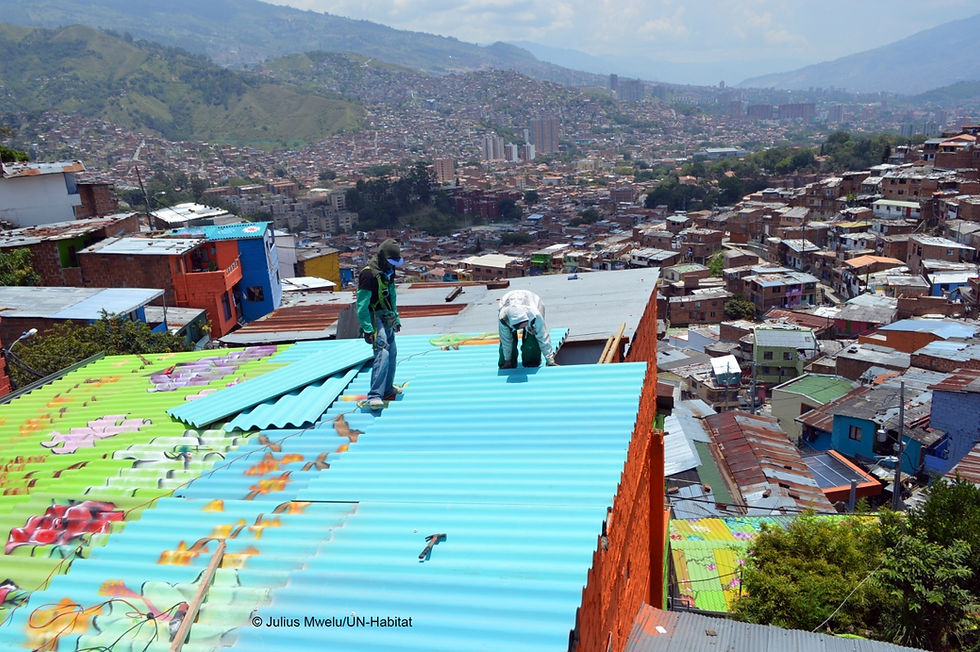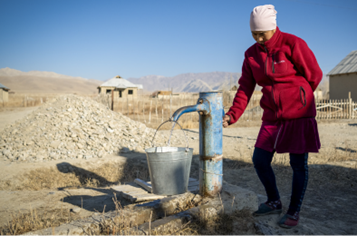Launch of European Microfinance Award 2017 on Microfinance for Housing
- Apr 4, 2017
- 4 min read

Each year, e-MFP launches the European Microfinance Award, in conjunction with the Luxembourg Ministry of Foreign and European Affairs and the Inclusive Finance Network Luxembourg (InFiNe.lu). And like previous years with their focus on agriculture, social performance management, the environment, post-disaster and crisis contexts, or last year’s edition on Education, this year’s Award is looking for applications from financial institutions that are innovating, exploring and testing new ideas, that go beyond their core financial services, and exemplify the evolution of the microfinance sector beyond boilerplate microenterprise credit.
Housing is a great example of how to do this. After the health and safety of children, there’s probably nothing more important to people everywhere than adequate housing. It is a core human need and a top investment priority for families anywhere. But 1.6 billion people live without adequate shelter. By 2030 this will have doubled and the need will be mostly in urban areas, where more than half of the world population lives today and where it is estimated that 2 billion people will be living in slums, where, almost by definition, substandard and unsafe housing is the norm.
Addressing this is about more than just poverty (although poverty is strongly correlated with inadequate housing). Low quality housing affects a host of factors that hold back development: exposure to the elements, poor ventilation, and insufficient hygiene and sanitation facilities are all causes of poor health; poor building structures undermine safety and vastly increase vulnerability to disaster; lack of lighting and sufficient space limit children’s educational opportunities; insufficient privacy and lack of toilet facilities can contribute to sexual assault and constrain opportunities for women and girls. And lack of clear property rights are major contributors to crime and social injustice, while limiting families’ ability to invest in better housing.
This doesn’t just help families. A healthy, vibrant housing finance market can be a major economic engine, generating local employment and drawing mainly on local inputs. Meanwhile, communities enjoying secure property rights are also more likely to give rise to active citizens, less tolerant of corruption and more demanding of their political leaders.
Housing markets usually involve private actors – a bit different to previous Award subjects like education or crisis response, which are usually the province of public bodies or NGOs. In developing economies, housing finance is woefully underdeveloped, limited to upper income households usually with formal (often government) jobs. For many MFIs serving low-income families, housing is often relegated to a niche product targeting a small number of clients, with housing loans accounting an estimated 2% of combined microfinance portfolios worldwide.
For the microfinance sector, housing finance presents an opportunity to branch out not only into new lending, but to reach new clients as well. This new segment is both capital-hungry and still largely unserved, providing vast opportunities for growth. And opportunities for creating social value are just as real, with investments in housing generating not only stability and comfort for families, but also better health and improved standards of living.
So in every way, improving access to adequate housing has positive knock-on effects across the spectrum of development outcomes. For this reason, the 2017 Award looks to recognise institutions that provide a broad range of financial services – from helping households to build out and improve their own homes through housing microfinance and housing savings to supplying micro-mortgages that allow young, working poor families buy decent apartments. Property insurance can be crucial in helping clients get back on their feet quickly following a natural disaster. Even remittance products can play a role, for example, enabling long-term overseas workers direct their remittances not only for current family needs, but also to accumulate the large sums needed to build or buy a home when they return.
As this Award will illustrate, successful MFIs are partnering with NGOs and local governments to help clients secure tenure and gain protection against eviction. Others collaborate with housing specialists to enhance local construction markets with supplies and building techniques that result in homes more resilient to earthquakes or hurricanes.
And MFIs may offer non-financial services linked to financial products as well, such as educational materials related to house construction or renovation; trainings on home improvement plans and budgets; professional advice on planned construction or renovation; or legal advice on land ownership execution; or Technical Assistance – providing the capacities to renovate or construct a house.
This is a broad and fascinating range of potential interventions by MFIs and e-MFP is excited to receive applications that offer different and innovative ways to improve housing conditions, from home purchase or expansion of existing living space, to providing access to clean water, sanitation, electricity, and other core housing needs, to raising the quality of those homes being lived in, to mitigating against the risks of natural disasters using the latest designs and materials.
Besides the cash prize, the press exposure and investment opportunities that come from being a semi-finalist, finalist or winner of the Award can be enormous, as organisations who have done well in previous years can attest. The call for applications from institutions working in this area is now open and all the details of eligibility and more about the scope of the award can be found in the Explanatory Note on the Award website.
We look forward to seeing you at the Award ceremony at the EIB where the winner will be announced and the €100,000 prize presented on November 30th!
Watch our video Why the European Microfinance Award?
author: e-MFP





Comments